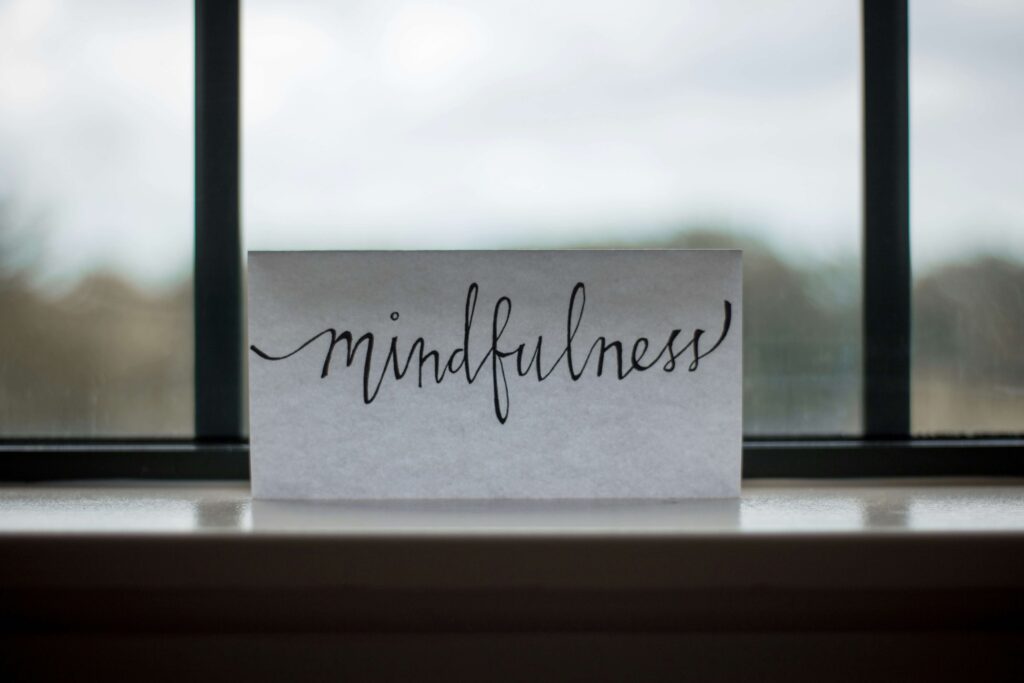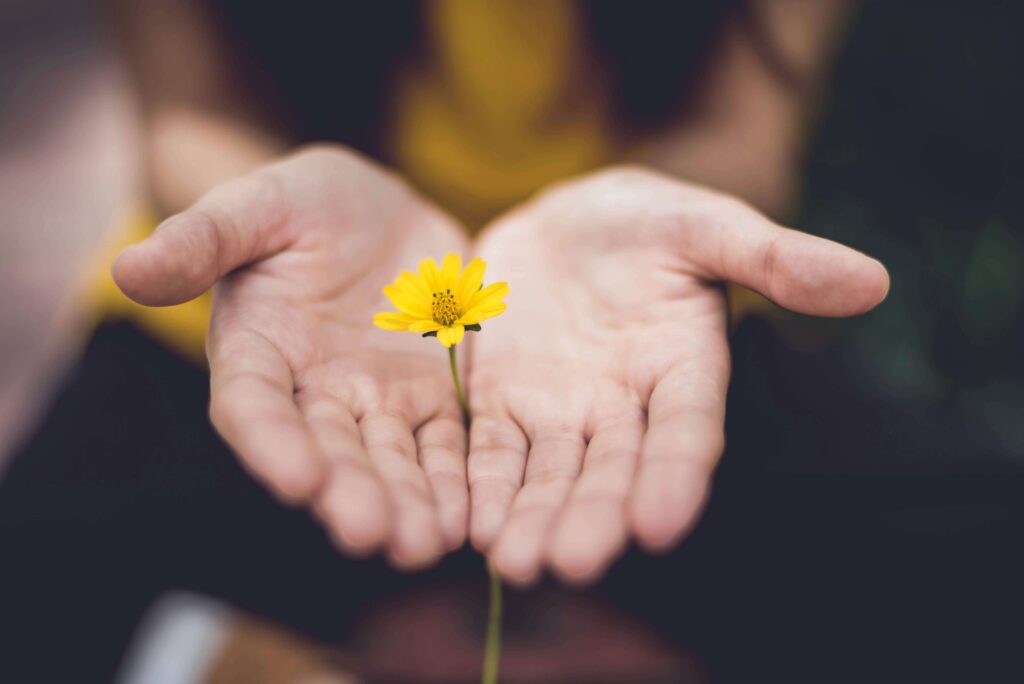Have you ever found that when you’re washing the dishes, taking a walk, or grocery shopping that your mind is completely lost in thoughts? You may notice your fantasizing about a new job, a future vacation, or replaying a recent conversation. Throughout any of the above scenarios, you’re likely not focusing on the present moment. Maybe you’re quite far away from the here and now. This way of operating is often referred to as autopilot mode. Living under autopilot often leads to feelings of anxiety, uncertainty, and unease, and it can be incredibly uncomfortable and stressful. A mindfulness meditation practice is a beneficial way to help ease feelings of anxiety as well as reduce overall stress levels and promote a deeper sense of calm and relaxation. Mindfulness is the opposite of automatic pilot mode. It is rooted in a present-moment awareness of the here and now.

Goals of Mindfulness
The goal of mindfulness is to develop a mindset of focused relaxation by deliberately paying attention to your thoughts, feelings, and sensations, however doing so without judgment. Through a meditation practice, you can learn to simply stay with and trust your feelings as they arise. Rather than trying to analyze or escape from your thoughts or feelings, the practice involves observing them without any judgment or effort to shift them.
Ultimately, learning to observe your thoughts and emotions as they come up will lead to a remarkable shift. You’re probably wondering how to start. While I’ve been practicing transcendental meditation for almost ten years, I’ve tried many types of meditation along the way including mindfulness. The great thing about mindfulness is that you can incorporate it into any activity or chore you’re already engaging in. So, for example, the next time you’re washing the dishes, you can practice mindfully washing the dishes.

Practicing Mindfulness: Techniques for Cultivating Present Moment Awareness
If you’re new to this practice, here are a few key things to keep in mind and tips on how to begin.
Observe/Describe:
The basic concept of mindfulness is the idea of setting aside time to focus on the present moment and centering your thoughts on the here and now. Instead of one’s typical mode of thinking and analyzing, the goal here is to focus one’s attention on simply observing thoughts, body sensations, and feelings as they arise with kindness and curiosity. Another important concept of mindfulness is describing. If you’re practicing mindfully taking a shower, you’ll want to describe in detail the sensations that you notice. Try to describe the smell of the citrus soap, the temperature of the water, and the color and texture of your shampoo. The key here is to try to engage all five of your senses. If you’re mindfully observing your thoughts, this might look like instead of perhaps attaching to your worry about a conversation you had with your boss, it would look like this: “I’m noticing I’m having a thought about a conversation with my boss. I’m also noticing I am having anxious thoughts and worries about the conversation.”
Non-judgement:
Another crucial component of any meditation or mindfulness practice is non-judgment and radical acceptance. Your mind and thoughts will wander, this is completely normal and expected. What is important however, is to not criticize or judge yourself when your attention wanders. In fact, the actual act of noticing your mind wandering and then bringing it back to your breath, mantra, or any other guide, is the whole point of mindful meditation. When you notice and catch your mind wandering, you’re meditating! It is within these moments of meditation that you are becoming more aware of the actions and the power of your mind. When your mind drifts, which it will, you can say to yourself, “the mind wanders, that’s okay, that’s just what minds do.” Then bring yourself back to either noticing your breath, sensations, repeating your mantra, or any other practice you are following.
Here are several ways to creatively start a mindfulness practice:
- Mindful shower
- Mindful walk
- Mindful laundry folding
- Mindful breakfast
- Mindful workout
Finally, check out my resource page for a list of apps available on your phone to begin meditating today! If you’re interested in learning more about developing a mindfulness practice, at Liz Yarock Psychotherapy, I offer a complimentary phone consultation!

Get Started With Therapy for Women’s Issues Today
Ready to begin your journey toward empowerment and self-discovery? Take the first step today with Liz Yarock Psychotherapy by scheduling your complimentary phone consultation. Together we can explore your goals for therapy and determine whether we’re the right fit. Don’t let the challenges of today’s world hold you back any longer. It’s time to prioritize your well-being and reclaim your inner strength. Follow the steps below to get started:
- Schedule a consultation here.
- Read more blogs here or about my approach.
- Practice and learn more mind-body strategies and mindfulness to help reduce stress and ease your mind
Other Services Liz Yarock Psychotherapy Offers
Liz Yarock Psychotherapy offers a range of services to support holistic well-being. From anxiety counseling and life transitions therapy to relationship therapy and women’s issues therapy, I provide tailored support using evidence-based techniques. I also work with Highly sensitive persons helping those to feel more empowered to navigate the world with resilience. Whatever your needs, I’m here to support you on your journey towards greater mindfulness and well-being.
Book a consultation today!
I am happy to offer a complimentary 15-minute phone consultation to help you gain a sense of who I am and my approach to therapy in order to determine if we will work well together.
